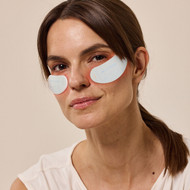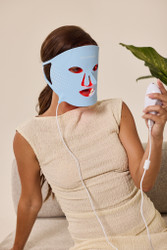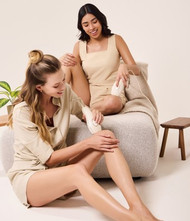PCOS and hair removal - how do women feel?
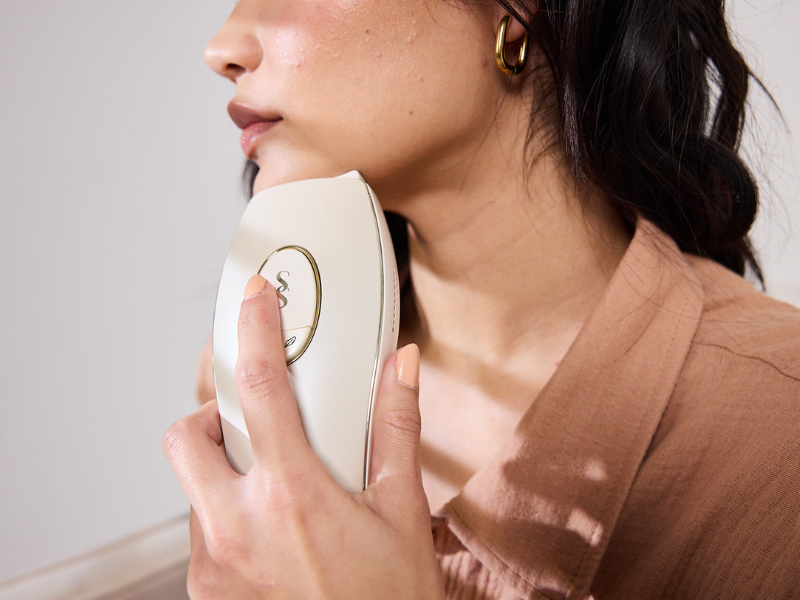
For many women, the challenges associated with PCOS and hair - especially when managing their body hair - can be deeply personal and emotional at times.
Formally known as polycystic ovary syndrome, PCOS is a condition that typically affects women of reproductive age, with common symptoms including irregular periods, excess androgen levels, and cysts in the ovaries.
And while many might believe PCOS is a rare condition, according to the CDC, polycystic ovary syndrome affects as many as five million women of reproductive age in the US.
As well as this, the condition can often lead to excessive PCOS hair growth, otherwise known as hirsutism, in areas like the face, chest, and back, where body hair is typically not as prominent in women.
As such, the team here at SmoothSkin conducted research* into how women with PCOS feel about their body hair, including the time they spend doing hair removal, and any side effects they have.
Women with PCOS’ emotions towards body hair
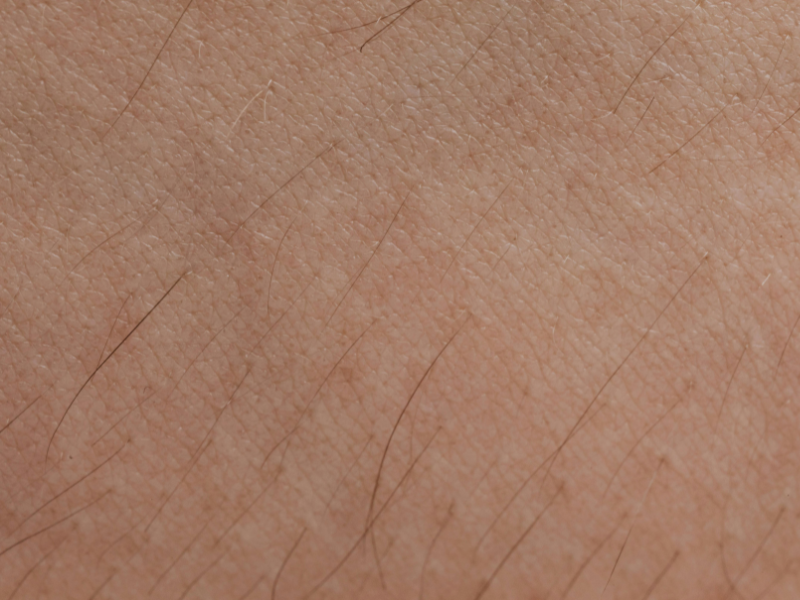
For many women with PCOS, body hair is more than just a cosmetic concern. Our new research found that for many, it’s also a source of negative emotions that can sadly affect their confidence.
Our research found that while 63% of women overall said they feel negative emotions about their body hair, this figure lowers to 56% among women with PCOS.
In fact, the most common negative emotion women with PCOS associate with their body hair was found to be “embarrassment” (18%), followed by “annoyance” (11%), and “uncomfortable” (10%).
However, despite the overarching negative emotions, women with PCOS in the US are actually less likely than the average woman overall to have negative perceptions about how their body hair looks - they’re 12% less likely to think that removing body hair equals a better appearance (18% vs 30%).
Our data also found that women with PCOS dislike body hair on their facial area the most, with the upper lip taking the top spot for women both with and without PCOS.
Following this, women with PCOS most dislike the body hair on their cheeks, neck, and chest.
How long do women spend on PCOS hair removal?
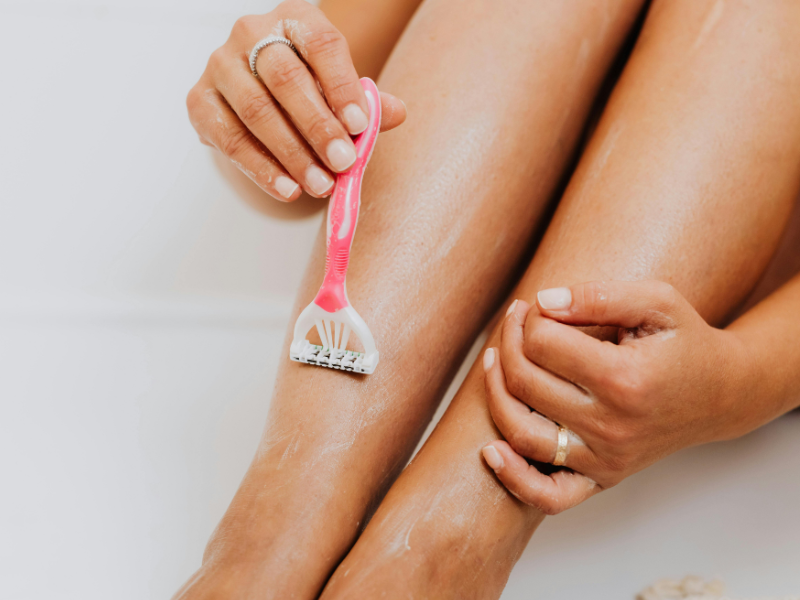
As well as this, women spend an average of 21 minutes and 28 seconds on PCOS hair removal each week - that’s 5 minutes and 11 seconds longer than the average woman (16 minutes and 17 seconds).
But while these minutes may seem like a small amount, over a year, that’s almost five hours of additional grooming time .
This additional time often comes with frustrations, as women with PCOS are almost 2 times as likely to suffer from ingrown hairs (23% vs 12%), and 2.3x more likely to think hair removal is painful (14% vs 6%).
Read our blog for more information on how to get rid of ingrown hairs.
Given these challenges, it’s no surprise that women with PCOS are 5% more likely than the average woman to wish they didn’t have body hair at all (25% vs 20%).
Tips for PCOS hair removal
Managing unwanted excess hair growth caused by PCOS can be challenging, but with the right strategies, we believe everyone can feel confident and comfortable in their skin, no matter how much body hair they have - don’t be ashamed!
However, if you’re looking for PCOS hair removal tips and advice, we’ve shared our top 3 below:
- Choose the right hair removal method for you
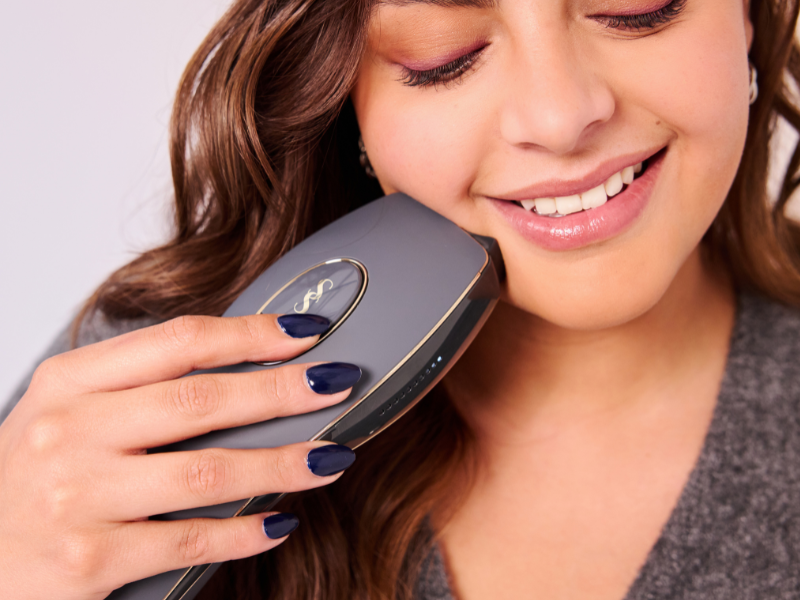
We all have different ways we like to remove our body hair - whether that's with a razor, an IPL, or even threading. No matter the tool, it’s important to choose a hair removal method that suits YOUR needs.
Temporary solutions such as waxing or shaving are common ways to remove hair quickly. However, these methods require frequent upkeep when our hair regrows quickly.
For longer lasting, and less frequent treatments, consider laser hair removal methods such as an IPL, which you can also do at home. These devices work by targeting the pigment in the hair follicles, and absorbing the light energy. This then affects the hair follicles, and disrupts their growth.
For women with PCOS, their body hair can be very dense, so using the right device, as well as the right settings, is crucial so that the hair can be permanently removed without damaging the skin.
2. Follow proper skin care advice to avoid irritation
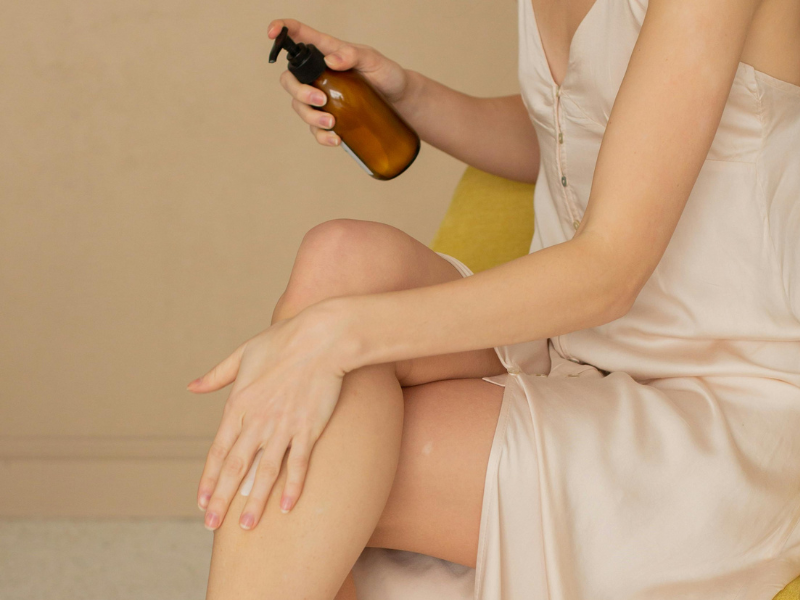
While our research shows that many women with PCOS suffer from frequent ingrown hairs, there are ways to prevent these and treat them effectively.
Exfoliate regularly using a gentle scrub or a chemical exfoliant (such as salicylic acid or glycolic acid) to remove dead skin cells, and prevent hair from becoming trapped under the skin. It’s recommended to do this once or twice a week, but this will depend on your skin’s tolerance.
It’s also important to moisturize your skin after hair removal to soothe any irritation, and look for products containing ingredients like aloe vera, chamomile, or shea butter, which are great for the skin.
3. Seek medical advice
In some cases, managing body hair growth with PCOS can be overwhelming, so you may choose to seek medical advice for additional help.
There are various different remedies that can slow down hair growth, but contact your local health care centre to discuss any concerns you might have.
*The research was conducted via a 3Gem survey of 2,000 American adults aged 18+ who remove body hair. Survey conducted between 20th-26th November 2024.

